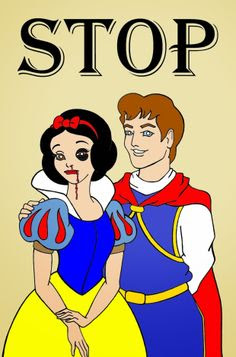My passion for Chicago, the city’s people, and its music grew this weekend.
I went to a free concert in the city.
That’s right—free.
I can’t express my gratitude enough for Chicago’s willingness to embrace free concerts that broke college students like me can attend. Chicago is home to a rich establishment of pricey musical events that take months to pay for either because you’re saving up or… waiting for your parents to finally cave. It’s okay-we’ve all done it.
 You have to take the good with the bad… Isn’t that what they always say? Well, they’re right. Paying as low as $15 or less up to as high as over a couple hundred dollars for concerts, performances, festivals can burn a hole in your wallet. And yes, even that $15 can burn the hole-college students, back me up.
You have to take the good with the bad… Isn’t that what they always say? Well, they’re right. Paying as low as $15 or less up to as high as over a couple hundred dollars for concerts, performances, festivals can burn a hole in your wallet. And yes, even that $15 can burn the hole-college students, back me up.
But we go to them, right? We still choose to save even those couple hundred bucks that we don’t have, those couple hundred bucks that should be saved for more serious items like school books and our future car; we still choose to beg our parents endlessly.
We go to them because we appreciate the beauty of musicand how significant it is to our lives; we go to them because we understand how vital it is to make time for pure enjoyment, and how vital it is to take breaks from the more solemn aspects of life; we go to them because we’re human, and we like spending money on things that we’ll probably regret later, but for right now, are so worth it.
So my point is that we have to take the good with the bad… that irrespectively of the many substantial expenses Chicago entails for entertainment, we’ll continue to proceed buying the tickets regardless; and most importantly, the city still provides musical events that everyone can join, whether two cents in your pocket or two hundred dollars. It’s not Chicago’s fault the city is so expensive and that certain artists necessitate costly expenditure, so visit the concerts that Chicago can afford, without the demand for excessive ticket prices. Not to mention these places--these restaurants, hotspots, bars, venues—don’t make ample revenue; they acquire earningsby holding an exciting, upbeat enough experience so that attendees will buy drinks, food, clothing, etc. The fact that these places remain insistent says a lot about Chicago-that the city encompasses spots not only comprised of unselfish business and workers, but that these spots are lively enough to still profit successful income from visitors.
With all that being said, I realize that several of these concerts denote entertainers that may be distinctively new, have few experience, and often may be assumingly less talented. While I must elucidate the concert I went to heldan imposing performance with what seemed like extremely talented performers; they were considered novel artists that did have less experience… which indicates my reasoning behind my flourished love for the people of Chicago.
We don’t care.
First ‘RSVP’ing,’ I felt particularly concerned whether the concert would be noticeably more monotonous due to the lack of overall familiarity regarding the song selection. I agonizingly suspected the prospective crowd as resembling minimal motion, virtually no singing, chanting, or reciting of words or lyrics; worse, I fretted there wouldn’t even be a large enough crowd to resemble and observe.
I was wrong.
Upon arriving via cab, the driver explained the venue was “right on the corner,” and we’d run into it. We were walking and searching longer than anticipated leading us tocheck our phones only to ascertain we had gone too far. We reversed directions and walked back to the original place the driver was last—we had not even realized that the corner was directly in front of us. We didn’t notice it… because we failed by underestimating the tremendously extensive line of people waiting to get in the concert that lingered outside the hall throughout the street. My friends then told me the RSVP’s closed within just a few hours after being posted, which in terms of non-free concerts, this performance theoretically ‘sold out’ fleetingly.
The people loved it. The suspected absence of a full, copious crowd resembled a jam-packed, overflowing crowd, embodying a lavish variety of diverse individuals and dispositions; the suspected motionless crowd resembled an exceptionally active crowd, vigorously dancing, jumping, and swaying; the suspected crowd personifying a lack of caroling resembled remarkable chanting, endeavoring to grow acquainted enough with therap lyrics in order to partake in the songs.
I’d say these people were nice to the new artists, but that’s both too simple as well as potentially rendering the performers out to be less gifted if fans had to be ‘nice.’ I say, rather, the people were respectful. They understand and take into keen account the probable dearth of experience, practice, and involvement with both this business and live experiences; they value their inclination to try; they acknowledge their motivation to execute an exhausting, notable performance, paying no mind to scarce revenue gains.
I love the people of Chicago because we respect new artists, melodies, and performances. We attend these concerts with poise and maturity, choosing to grasp newfound talent in an entertainer and neglect all oddstargeting the artists’ little performance background.
Never to disregard the people of Chicago exhibit a desire for new music in general.
We’re fiends for the latest up-to-date songs we can blare loudly; we’re fiends for innovative lyrics we can memorize; we’re fiends for the hottest new artists we can look up to and fawn over. I love the people of Chicago because we appreciate the old, and we welcome the new. We undyingly crave listening to new songs and artists while remaining unconditionally persistent to listen to those previous.
My fellow concertgoers gave these performers and their music a chance. They chose to stay through five full hours of a concert presenting uncommonly renowned rap artists that rapped limited songs and lyrics they knew. And the ones they did know, the ones the rappers introduced as covers, they went wild for, joining in crowd harmony as they danced in constant motion and deafeningly rappedalong with the artist.
The people’s enthusiasm for both new music and old helped incite my prospered passion for music. I had never been to a concert with artists I knew nothing about performing unfamiliar songs. Quite frankly, when my boyfriend brought it up I was greatly hesitant, though the experience further escalated my need for music and performances. I discern my uncertainty as happening for a reason… that because my expectations were so low and the result was so high, I became better mindful of my adoration for the musical process itself. I realize that I need notmandate solely artists I know personally and their lyrics I’ve remembered committedly-I’ll have the time of my life at a show as long as it has an artist to purely sing and lyrics to become conversant.
This concert aided in my emerging passion for Chicago. Through Chicago, my passion for people grew--through the people, my passion for music grew—and vise versa.
Chicago remains home to kindling and rekindling all versions of love. Free concerts became an addition to mylist of the city’s sundry sources of provoking my inner passions.
So next time you’re bored, visit a free concert. Even if you don’t know the artist, listening to beloved music genres live sure beats sitting at home.



























